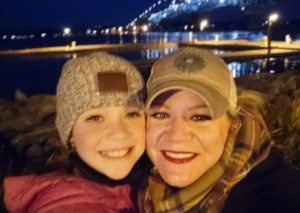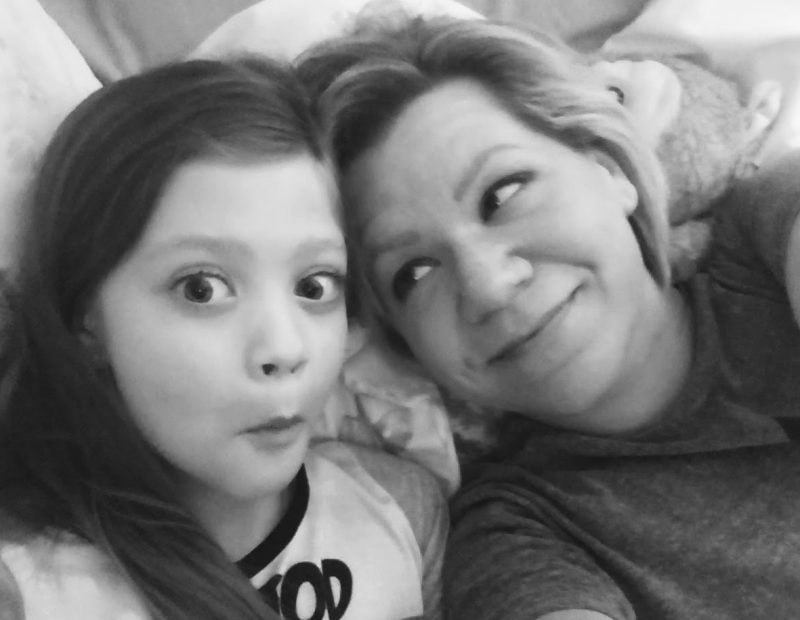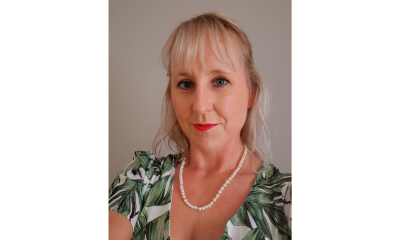by Brooke Carlock
I’m not sure exactly when I became a resilient person. My mother described me as a whip-smart, confident and headstrong toddler. But something shifted in my elementary-school years. My parents dragged my four siblings and I through a particularly messy divorce that took years to finalize. My mother, scorned by my father’s affair, refused to communicate with him in any capacity, leaving me as the designated “messenger” between the two contentious adults in my life.
I became the ultimate people-pleaser, desperately trying to navigate communication between my parents so that I wouldn’t upset either one and have to hear their anger towards the other.
No matter how hard I tried, though, I grew up hearing lectures full of vitriol toward each parent’s flaws. I think, perhaps, this is when my resilience started. I became extremely self-sufficient and self-motivated, graduating college, getting a good teaching job, getting married, and starting a family.
I vowed when I married my high school sweetheart that my family would end up differently than my own. I wanted better for my children. I wanted to be the perfect wife, mother, teacher, and daughter. I wanted the middle-class white picket fence life, and I was determined to have it.
It was two days before my due date with my first son, Max, that I found out my husband was having an affair with a coworker.
That discovery rocked me to my core — literally changing everything I thought about the world. It was my first real experience with true grief. I knew my life would never be the same, and would never turn out as I had wanted. I tried valiantly to forgive and get counseling and put my pieces back together. I fought for my marriage because I couldn’t let go of the dream, but the dream was tarnished now. It wasn’t as happy; the colors weren’t as bright. That event changed me more as a person than anything that had or has happened in my life since.
Whether through resilience or sheer stubbornness, I was determined to save my family. I tried to be the best mom that I could throughout the discoveries, separations, and fights. I stayed professional at work and strong in public.
My resilience would be tested again one year later — almost to the week — of that first discovery when my sister Shannon died. Her five-year-old daughter found her in her bed, unconscious. She had been sick with a cold for a few days; I had talked to her that evening and she was happy, chatting about making Christmas Eve dinner for my dad and stepmom. She went to bed that night, her lungs filled with fluid, and she never woke up. She was 32.
I remember feeling almost numb for an entire year after Shannon died. I was still reeling from the affair, and taking care of a one-year-old baby while working full-time. For the next 20 years, I would call the year of the affair and my sister’s death the worst year of my life.
Fast forward a few years, and my husband and I were making progress. I had decided that I just needed to let go of my anger and jealousy and I did my best to start fresh. We had our second son, Grayson, two years after his affair, and six years later came our greatest surprise — our daughter Libby. We were both shocked when I got pregnant, but then ecstatic when we found out we were having a girl. Our family felt complete and mended, and things were good. I thought we had come out stronger on the other side, and I was happy about my decisions. I still considered my husband the love of my life.
In the years that followed, life was mostly stable, marked by a few devastating losses. I lost my sister-in-law to a long, drawn-out health battle, as well as both grandmothers.
And then everything fell apart again. I had known that my husband was restless and unhappy, but at that point, I figured we had been together 23 years — and we’d proven we could make it through everything. I thought it was a low point in the ups and downs of a long marriage.
I was wrong. It was on Valentine’s Day, with my husband in bed beside me, that I received a text from the husband of one of his coworkers telling me that my husband and this man’s wife had been having an affair for over a year. I looked over at him and knew it was true. I felt the same icy fingers climbing up my back as I had 18 years before and felt the world start to spin. I knew my marriage was over.
Resilience is the ability to recover, adapt, and move forward. To encounter difficult situations yet keep going, and perhaps even growing, along the way. My children were my “why.” My reason to keep going and to stay strong. I bought my own house, filed for divorce, and vowed that I would never do what my parents did to me to any of my kids. I maintained a positive co-parenting relationship with my ex-husband even though it hurt just to hear his name.
All of these events — 43 years’ worth — built my resilience. When bad things happened, I shifted, I grieved, and I recovered, becoming a slightly stronger version of myself each time.
None of them, however, prepared me for what was coming. In November 2021, my dad died from a heart attack on the side of the road while he was driving home from work. Ten days later, on the day of my dad’s funeral, my stepmother killed herself.
Three months later, still reeling from the loss of my dad, I got the phone call that every single parent dreads more than anything in existence. I clicked the green button on my cell phone to hear my children’s father sobbing hysterically on the other end, telling me that Max and Libby had been in a car accident. Amidst the screams and cries, I made out the words, “I think they’re dead.”
I made it to the scene to see my son’s car completely smashed. It had been T-boned by a tractor-trailer. There was a white sheet hanging over the side of the car so that I couldn’t see what was inside. I found my ex-husband and a police officer and they confirmed what I already knew deep in my soul. My son had been found unconscious but was able to be revived; he was already in an ambulance on his way to the hospital.
My beautiful, kind, talented, funny 10-year-old daughter was dead.
You can read a million stories about grief and loss, but until it happens to you, you can never really grasp what it feels like to lose a child. It is quite literally indescribable. Libby’s death eclipsed every single bad thing that had ever happened in my life. It sucked the life right out of me. I went numb and spent the next week on auto-pilot making arrangements. I wrote her obituary and her entire memorial service myself because I wanted them to be *exactly* right. I made compilation videos of her many dances and playlists of music to be played during the service.
When it was all over and I was at home in the quiet, I tried to keep myself busy. As a teacher and a writer, my natural tendency when something bad happens is to research. Obsessively. I dive in headfirst and learn as much as I possibly can about whatever problem I’m having.
When Libby died, I read or listened to every book, website, podcast, and YouTube video I could find about grief, trauma and child loss. I joined multiple online groups for grieving parents and went to support groups in person. What I found was that the majority of media out there was severely depressing. It was also overwhelmingly religious, and since I am not, it was difficult for me to relate.
Losing a child tested every ounce of resilience I had. But the truth is, no amount of resilience prepares you for such tragedy. Feeling lost, terrified, and misunderstood, I felt the pull to share my struggles. Writing has always been my therapeutic outlet, so I started a blog called Grieving Mommy to journal my grief process after losing a child. The response to my posts was so validating — I heard from many grieving mothers that my raw honesty resonated with their own feelings and made them feel less alone. I am honored and hopeful that Grieving Mommy will grow and turn into a place of education, healing, and community — a place to build resilience for those of us traveling this most difficult road.

Along with sharing my own grief story, I also found that I needed to honor my daughter, who was a talented dancer, by continuing her legacy of compassion and kindness. After Libby died, her dance teammates, classmates, and the community gathered and made chalk drawings outside Libby’s elementary school and dance studio. When my ex-husband and I went to see the drawings, we noticed many children had written a phrase that absolutely melted our hearts and encapsulated our daughter’s legacy perfectly: Live Like Libby.
We decided to form LiveLikeLibby.org, a nonprofit organization that helps financially struggling dancers with scholarships to help pay for lessons, competition fees, and costumes. Our motto is “Libby wanted the world to dance. We want to help.” Every dollar we raise to help fellow dancers, and every tee-shirt, sweatshirt, mug, or sticker we sell with the “Live Like Libby” logo helps give meaning to the senseless death of our beautiful girl. I think she would be proud.
While it will never help me heal completely, helping others through GrievingMommy.com and LiveLikeLibby.org has become my purpose — my reason to brave the agonizing grief, to grow, and to keep moving forward.
For more information about Brooke, you can check out her website.
Support us by driving awareness!
Subscribe to our YouTube channel at YouTube.com/GrapGrief.
Follow us on Facebook at Facebook.com/GrapGrief and on Instagram at Instagram.com/GrapGrief.







